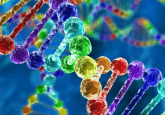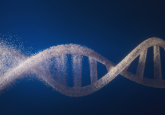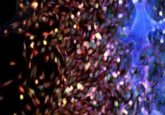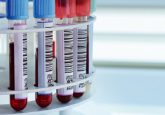Neoantigen-based precision therapeutics
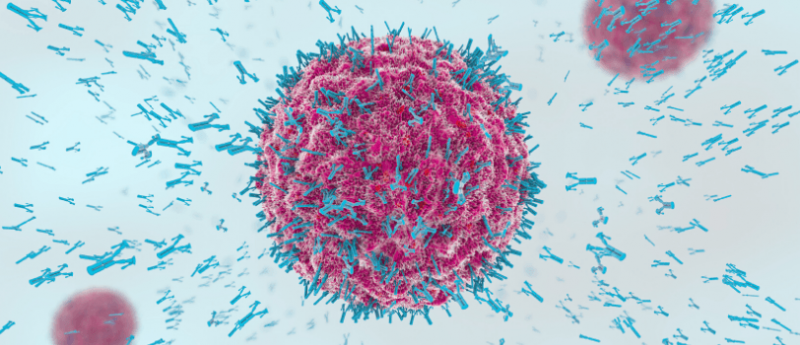

Samantha Zaroff
What are the challenges with developing neoantigen-based precision therapeutics and how can they be solved? Samantha Zaroff, Senior Technical Writer at GenScript (NJ, USA), discusses.
What challenges arise with developing neoantigen-based precision therapeutics and what are the benefits of them?
The two challenges that I see with neoantigen-based precision therapeutics are the actual identification and narrowing down of neoantigens from the thousands of initial candidates you receive when identifying the mutanome to the 20 or so peptides that you want to put into a vaccine. From there, the second challenge would be generating those peptides, especially through all stages of discovery and development of the therapeutic, as neoantigen peptides tend to be very difficult to synthesize.
Neoantigen identification occurs when a patient is diagnosed with cancer, and they are no longer able to benefit from standard treatments of care like chemotherapy and radiation. Other therapeutics might be out there, even other immuno-oncology drugs, but it’s at that point where a personalized treatment might be investigated.
Through NGS technologies, the genetic sequence of a patient’s tumor will be compared with wild-type tissue – the same tissue of the patient that is considered healthy. From there, bioinformatics discovers the mutanome, which is a wide array – potentially thousands – of peptides known as neoantigens that are expressed on cancerous tissue but not wild-type. Then, the mutanome is narrowed down through bioinformatics-based prediction of immunogenicity and therapeutic efficacy.
After neoantigen candidates have been identified through bioinformatics, those candidates will be synthesized and used for in vitro functionality screening to confirm predicted therapeutic efficacy. This brings us to the second difficulty, which would be the peptide generation. Neoantigen peptides can be extremely difficult to synthesize due to their varying length, charge, tendency to aggregate, and hydrophobicity. All of these intrinsic characteristics will be different based on the downstream therapeutic application of the peptide, whether it be for personalized cancer vaccine development or T cell therapy, as well as the laboratory application of the peptide, such as an EliSpot for functional screening or for in vivo toxicity assays in laboratory animals.
What is the purpose of GenScript’s Neoantigen Peptide Synthesis Service?
The purpose of GenScript’s Neoantigen Peptide Synthesis Platform is to evade the challenge of peptide generation through all stages of neoantigen development. It has the ability to generate reliable neoantigen peptides for the precision immuno-oncology therapeutics community, as it can be difficult for researchers to find reliable neoantigen peptides due to their specific needs in purity, length, quality control and timeline.
At GenScript, we can synthesize large numbers of challenging neoantigen peptides and provide tailored optimization tools for all downstream applications. The main purpose of our synthesis service is to provide neoantigen peptides for all stages of therapeutic development, from early discovery and narrowing down those initial bioinformatics candidates, all the way through to after the injection of the personalized cancer vaccine into a patient for the post-clinical efficacy screening of peptides.
GenScript’s neoantigen peptide synthesis platform is unique in that we begin every project with an assessment of each peptide’s sequence using our propriety NeoPreTM algorithm. This algorithm will assign numerical values of peptide synthesis difficulty based on intrinsic characteristics that commonly cause problems during production. From there, the algorithm will recommend the best synthetic methodology in order to produce that particular peptide with the highest success rate. This method will be reviewed by one of GenScript’s peptide experts in order to determine how the peptide will be produced. Once the peptide is synthesized, it will be optimized through our AccuPepTM quality control platform and library design tools, if requested.
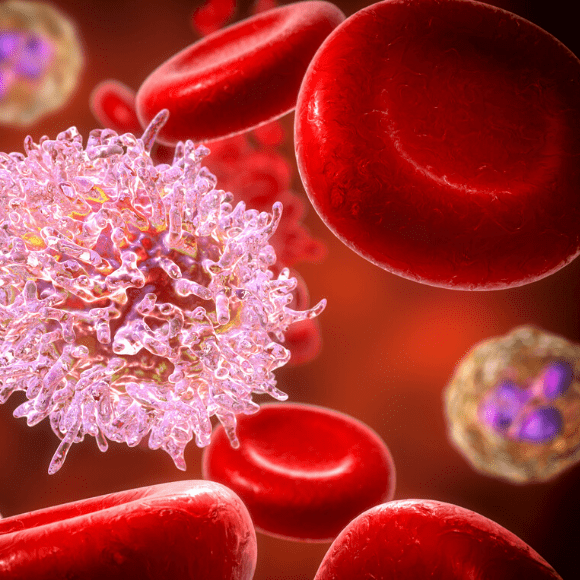 How is cancer immunology being utilized in the fight against cancer?
How is cancer immunology being utilized in the fight against cancer?
Cancer immunology refers to the immune system’s role in the progression and development of cancer. As with all disease, our bodies have certain immune defenses intended to protect us from tumor development. However, tumor cells have developed ways to evade immune surveillance, and can even create immunosuppressive tumor microenvironments to develop without interference from the immune system.
How does the platform fit into the process of developing personalized cancer treatments and vaccines?
There are seven different stages of therapeutic discovery for personalized neoantigen precision immunotherapy development.
First and foremost is the tumor biopsy. When a patient comes in, the doctor will take a biopsy of their tumor and then sequence that tumor through whole exome DNA sequencing and/or RNA sequencing in order to identify the patient’s mutanome. From there, they will determine the predicted immunogenicity of neoantigen candidates and their therapeutic benefit through bioinformatics algorithms. After the neoantigen candidates have been identified, researchers will produce those neoantigen peptides for pre-clinical screening. This pre-clinical screening phase is different depending on if it’s a T-cell therapy or if it’s a personalized cancer vaccine, but GenScript’s Neoantigen Peptide Synthesis Service will work for any downstream application due to its extreme flexibility.
During pre-clinical functional screening, if you are generating a personalized T-cell therapy, the main goal will be to identify a TCR-neoantigen pair which when placed into a patient, will elicit a strong anti-tumor killing immune response. For this application, GenScript’s neoantigen peptide libraries are perfect for synthesizing large numbers of short neoantigen peptides in order to screen neoantigen epitopes against a wide array of patient derived T cells, and identify the strongest TCR-neoantigen pair. If you are generating a personalized cancer vaccine, the screening process will be a bit different. Depending on the modality of vaccine development, whether it be a DNA, mRNA, or peptide vaccine, GenScript will generate a few milligrams of either full length (25-40 amino acids) or epitope specific (9-11 amino acids) neoantigens. These peptides will be incubated with patient derived immune cells and analyzed to determine which neoantigen candidates elicited the strongest anti-tumor immune response through assays like EliSpots, flow cytometry, and cytotoxicity analysis.
After pre-clinical screening, there will be a decision whether to put this therapeutic into a patient. Before that, it has to be put into an animal to make sure that it works and that the intervention is safe. Normally, if the therapeutic has a novel addition like an adjuvant, or delivery vehicle, it will have to be tested in animals first. If not, then the therapeutic can go through to IND filing and clinical trials.
GenScript has experience working with a personalized cancer vaccine company – Avidea Technologies (MD, USA). They have their own method to get a peptide-based personalized cancer vaccine into the human body. We were able to generate the neoantigen peptides for all of their in vitro functionality screening as well as large-scale peptide synthesis for their safety and toxicity studies in mice and non-human primates. The results of their study indicated that their novel vaccine technology was both safe and efficacious, and because of this has been approved to move into the clinic later this year.
Once a personalized cancer vaccine or T-cell therapy is in the clinic, researchers will also require neoantigen peptides for post clinical efficacy screening. In this final stage of development, GenScript will produce both vaccine and control neoantigen peptides in order to determine if the vaccine worked to prime patient T cells to target and kill neoantigen expressing tumor cells.
What are the advantages of using a synthesis service?
It can be very difficult to do peptide synthesis on your own or in your own lab, and this is because neoantigen peptides can be very difficult to synthesize. They have varying ranges of charge, length, hydrophobicity, yields, turnaround time necessity and purity, all based on the downstream application.
Neoantigen therapeutics are used in patients that unfortunately are at the end of their life. They’ve gone through a lot of off-the-shelf style therapeutics. They’ve done chemo, they’ve done radiation and nothing is working.
At this point, time is extremely precious. You want to make sure you have a reliable provider of neoantigen peptides, so you can do the screening, you can narrow down your perfect neoantigen, put the therapeutic into a patient, and then test it to make sure that it’s working all within the shortest timeline possible.
Utilizing this kind of service, you are in the driver’s seat of your peptide production to make these peptides in a timely manner at the quality that you need in order to get them to your patient and save their life.
Do you think that this could be applied to any other areas or have any alternative applications in the future?
The service could be used for all realms of personalized medicine. It doesn’t have to be just identifying neoantigens within cancer. There are novel mutations that occur in a lot of different diseases, especially rare disorders, and a lot of immuno-based autoimmune diseases.
It’s more focused on oncology at the moment because cancer is a mutational disease and many cancers have high mutational burden, which leads to these neoantigens. There is a high need for neoantigen-based therapeutics in this space. Usually when you use an off-the-shelf product for oncology treatment, cancer can mutate at such a fast rate that when you use a tumor-associated antigen in order to target a therapeutic, that antigen could disappear based on any mutation and that’s called immune escape or antigen escape. With neoantigens, you don’t have that issue because neoantigens are mutations of themselves.
A neoantigen that is not oncogenic, cancer-causing, or expressed in wild-type tissue, will not usually continuously mutate so they are great targets. Hence, the immune system can be directed to pretty much any target cell of interest. It could apply to really any area in which a disease needs to target a particular mutagen or a particular protein to elicit an immune response.

